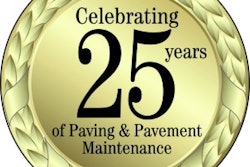
Price vs. service is a conflict contractors face regardless of the work they do, but for contract sweepers, where equipment costs are huge and margins are especially tight, bidding work too close to the break-even point or bidding work below cost (inadvertently or not) will prevent a company from growing and can push a company precariously into the red.
So, is it ever good business practice to base your bid on price? And if it is, under what circumstances should you do that? What factors do you need to take into account when basing your bid on price? When confronted with a low-bid-gets-the-job prospect how should you handle that customer? How does service fit together with price, and how can you work the two together to both get the bid and satisfy the customer?
One of the first things to recognize is that markets differ, so how each contractor approaches his market needs to account for those differences. Debbie Jacketta, Jacketta Sweeping Service, Salt Lake City, for example, says that roughly 10% of her market is low-bid-only work, but in Memphis, TN, where Carl Barton operates Aardvark Sweeping Service, he estimates half the market is low-bid. But Uri Ben-Yashar, owner of East Coast Parking Lot Maintenance, Pawtuckett, RI, frames the issue differently. ?Everyone is price focused,? he says. ?What you?re really asking is, ?What part of the market would give up quality for price?? because everyone is price sensitive.?
Ben-Yashar estimates 25% of the market East Coast serves would give up quality for price. ?Often that happens because the local store manager makes the decision on who the contractor is and his year-end bonus is tied to the savings on that store. So he?s going to give up quality to put a couple of bucks in his pocket.?
Gabe Vitale, C&L Sweeping Service Corp., Jackson, NJ, says publicly held companies and real estate investment trusts are another customer that is more price oriented than service oriented ?because all they?re concerned about is return to stockholders.? Barton says national accounts are the biggest low-price customers, so Aardvark Sweeping doesn?t even deal with them. ?I?d estimate that fifty percent of customers want service and fifty percent want price,? Barton says. ?We don?t deal with the ones who want price. That?s somebody else?s market.?
So what?s wrong with that? Is it wrong for a property owner or manager to base his sweeping decision on price alone? Is it wrong for a contract sweeper to bid based on price or succumb to the price pressure and reduce his price to get the job? The answer, according to these contract sweepers, is an equivocal ?Yes.?
?Price alone, absolutely not,? Barton says.
?There are exceptions to the rule, but the rule is you should not bid based on price,? Vitale says.
?My general answer is that bidding based on price is never a good strategy,? Ben-Yashar says. ?The reason is that when you sell based on price it implies that you?re not providing service. I can tell you that based on comments I?ve gotten from some of my clients. I had a small competitor who sold based on price. In fact on all his bids he would hand write ?I?ll beat any price? which implied to the customer that he wasn?t concerned with quality.
?And when you?re dealing with sweeping on a shopping center it?s all about quality, about the image of the property, and how the visitors to the property are going to view that shopping center. When you deal with price that doesn?t come across.?
Jacketta, who generates about one-third of her sales from parking lot sweeping, tries to price her services in the middle, not the least or the most expensive. She says that for her other work, particularly construction site cleanup, there isn?t much price pressure to deal with.
?In construction site cleanup they need it done when they need it done,? Jacketta says. ?Every once in a while a contractor will decide we?re too high and he?ll call in another less-expensive contractor, usually with an air machine, but often we?ll get a call later to come and finish the job.?
When price is the issue
But while contractors agree price should not be the basis for a sale, there are circumstances in which price has to become the issue. And then there are other factors that contractors need to consider if they are considering lowering their price.
Jacketta says there are instances where she is willing to adjust the price, but she doesn?t do it very often. ?For me to charge less than my normal pricing the job would have to be pretty much where I?m already at and it would have to be several times a week,? she says. ?It would have to fit in with what I?m already doing and would have to be done entirely on my terms.?
An example, she says, is if she?s got a route that?s not completely full where she could just add something in. ?But I wouldn?t do it in a new area we?re not serving because I?d need to get a number of accounts in that area to make it worthwhile, and I wouldn?t want to start with a low-priced account.?
Vitale agrees. ?If C&L does so much other [non-sweeping] work for a customer that sweeping is really a loss leader for us for that customer, then I would consider being more aggressive on price,? he says. ?Or if you?re trying to fill out a route where you?ve already made your nut on that route and you just want to add a stop that is pure profit to the bottom line. But in both cases that?s a practice by design.?
Barton says the only time he would be aggressive on price would be for what he terms a ?strategic? or ?investment? sale. ?If there?s a large property management company in town that you?ve not had a business relationship with, and if you have the opportunity to take one account and show the service you provide, I?d consider taking price into consideration at that point.?
?But I don?t hesitate to tell a customer that we?re willing to do this job for less than our normal price so he can see the service we offer. I let him know the price is lower than it will be in the future simply because I want to show him what we can do. That way they don?t get sticker shock if he wants to hire us for another project,? Barton says.
Never below cost
But all contractors agree they would never knowingly price a job at below their cost, which is why it?s so important for contractors to know exactly what it costs to put their equipment on the road.
Ben-Yashar says the sweeping business is such a low-profit industry that in order to be profitable some contractors might have to view the sweeping business as a loss leader. ?It?s very geographical, but in my area I would go bankrupt if I had to survive on sweeping alone,? Ben-Yashar says. ?As it is, sweeping profits are low but I will not work for a loss.?
?I would never price a job at a loss just to get it,? Barton says. ?I know my costs, and if for some reason we feel we need to be very aggressive on pricing, we would never be aggressive to the point where we do not make a profit on that job. To me, revenue without profit is a sin.?
Vitale agrees and recently gave up a large account that proves it. C&L Sweeping had an account that they serviced since the account opened, doing everything from sweeping to line striping, sealcoating, bumper stops, and bollards.
?A new manager came in and brought along his own contractors to do much of that work, so the job became a sweeping-only job for us. We couldn?t afford to do it for the price he was willing to pay. He even gave us last look at the job, saying if we would match the other bid he?d give it to us because he liked the work we did. But we just walked away from a $150,000 account.?
Some people would say you don?t walk away from that kind of job because it provides good cash flow. ?But we don?t need to practice anymore,? Vitale says. ?It would have been cheaper for me to give him $20 a day to not go out there than to get paid, so we just walked away.?
Barton says Aardvark recently gave up sweeping six ?super centers? because they weren?t willing to accept a necessary price increase. ?We took a major hit on our revenue side until we built back up, but in the meanwhile our profit margin went up. We were generating greater profit from fewer sales,? he says. ?We guessed that would happen, so we took a leap of faith and it worked out. Of course, you never want to give up revenue, but that?s our philosophy and we stick with it.?
Though hesitant to mention it, Vitale says that one reason to compete on price is if your company is expanding into a new territory and you feel you need to price low to ?buy? market share to survive. ?But to be successful at that you not only have to have a plan, you also have to be someone who really runs the company by the numbers,? Vitale says. ?You have to know what it costs you to put your sweepers out on the street, what your costs and revenues are going to be for that first year or two, and what the plan is to bring prices up to where they need to be for you to be successful in that new market. If you can do all those things then it might be worthwhile to try to buy the market share by cutting price, that might be a reason to do it, but that?s the only reason, and I?m not saying it?s a good approach.?
Know your costs
These sweepers agree that the single most-important step contract sweepers need to take is to learn their cost per hour. ?Even if you have to pay an accountant a one-time fee to help you determine your real cost per hour so you can calculate what it really costs you to sweep a parking lot, that will be the best investment you?ve ever made,? Ben-Yashar says.
?In a business that?s so low margin it?s very important to know where every cent is going because if you?re operating right on that red line it?s very easy to go under,? Ben-Yashar says. ?Once you know your costs you can make an educated decision on your pricing and you can make a better decision on whether to pick up that low-margin sweeping account.?
Ben-Yashar gives most contract sweepers the benefit of the doubt when it comes to pricing. ?I think low bidding for the most part is a result of a lack of knowledge of the cost of doing business,? he says. ?A small sweeping company that operates out of their house with one or two trucks usually doesn?t know what it costs to operate. They might have new equipment so they don?t have maintenance costs, and they might have a great financing deal with maybe a month or two skipped during the year, so their costs are lower than mine, for example. But because they don?t really know all the things that should be included in their costs, and because they won?t know what their costs are, they?ll price their work incorrectly and too cheaply. At the end of the day they?ll have a couple of accounts that make them money and maybe a couple of accounts that they lose money on, but they don?t know it. They figure they?re doing okay because even by sweeping the losing accounts they are adding revenue and at the end of the week or month or year they are profitable. But they are profitable because they are robbing Peter (their profitable accounts) to pay Paul (their unprofitable accounts).
?I know about that because I?ve been there,? Ben-Yashar says. ?I was bidding low but I was low because I didn?t know what my costs are.?
Vitale says C&L has analyzed its numbers, knows its cost-per-hour, and combined all that information with the profit percentage they want to make to determine their cost per hour. So when pricing a job all Vitale needs to do is figure out how long the job will take, add in any travel time to arrive at the price.
?You really, really have to know how to run your company by the numbers,? Vitale says.
Jacketta says her company has swept some jobs for less than cost - but not intentionally. ?And I can?t think of a reason I would do that,? she says. She says any time that?s happened it?s because she underestimated the time the job would take.
?The biggest problem for me is figuring out how much time it?s going to take to get the job done, and that?s just something every contractor has to learn,? she says. ?I know what it will cost per hour or per minute to be there. I just have to make sure I?m right on my time.?
Barton says he?s also a firm believer that you have to know your costs and what profit margin you?re shooting for. ?If you drop below that you?re never going to reach it, so that?s why I don?t believe in selling based on price,? Barton says. ?I?m an old Pepsi guy, and Pepsi always believed that if you live by the price, you?ll die by the price, and I believe that.?
He says he?s had more than one customer call him and tell him a contractor had said he would sweep their parking lot for $12 when Barton knew it should be more like $30. ?So in many cases I?ll walk the customer through our costs, and share some of our costs with them, and I?ll point out that our costs are similar to what all sweepers? costs are.
?So I asked the customer, ?If our costs are $65 an hour, let?s say, and it should be a half-hour sweep, what is it that you?re not getting from the contractor charging only $12 for the job? What isn?t he doing that we?re doing? Or how long is he really on that lot for $12?? I ask the customer, ?What aren?t you getting???
Competing with price
Educating and staying in constant communication with the customer is one way to compete against low-priced contractors.
?We work hard informing our customers what they should be getting from their sweeping contractor and we work hard giving it to them,? Barton says. ?We talk about insurance, legal dumping, and all the things every contract sweeper should be doing for them, and we educate them that all those things are included in our pricing structure.
?To me sweeping is a financial decision as far as protecting the assets of a property,? Barton says. ?We save them money and keep the property looking good, and saving them money is not necessarily doing the sweeping for less money.?
Other factors contractors use to convince property managers not to buy on price include:
More than one of the contractors said they stay in constant contact with each customer. ?We?re their eyes and ears out there and that can be very important,? Ben-Yashar says.
?We check our jobs, we use GPS, we talk about our length of time in the business, a while host of things. Plus, our work is guaranteed. If they?re not happy we?ll make it right, it?s as simple as that,? Jacketta says.
But no matter how hard they try, if price is the issue the other factors don?t have much impact.
?It doesn?t work a lot, maybe 25% of the time,? she says. ?The only way it will work is if they?re unhappy with the last contractor who swept for them and they?re willing to pay a little more to be happy, but even then they?re usually only willing to pay a little more. They?re not willing to go up a lot,? Jacketta says.
Vitale has come to the same conclusion. ?If the numbers are really far apart it?s not going to make a difference, but if they?re close we can usually squeeze the few extra dollars out of them,? Vitale says.
And for long-standing clients or even some large clients there are other ways to work with them to try to meet their price without giving in on your own price structure.
?Relationships, relationships, relationships. They?re so important, and it often comes down to that,? Vitale says. ?We provide good old-fashioned service, we work to meet their needs, and we respond immediately to any concerns a customer might have. In the end it all comes down to establishing trust, because if you can do that then in many cases price becomes less of a factor.?




![Pavement Awards 2025[main]](https://img.forconstructionpros.com/files/base/acbm/fcp/image/2024/05/PavementAwards_2025_main_.665883e4276e8.png?auto=format%2Ccompress&bg=fff&fill-color=fff&fit=fill&h=100&q=70&w=100)








![Pavement Awards 2025[main]](https://img.forconstructionpros.com/files/base/acbm/fcp/image/2024/05/PavementAwards_2025_main_.665883e4276e8.png?ar=16%3A9&auto=format%2Ccompress&bg=fff&fill-color=fff&fit=fill&h=135&q=70&w=240)







